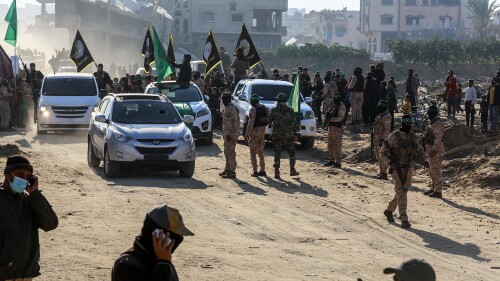Iran’s new president, Ebrahim Raisi, speaks during his August 5 inauguration. |
The Taliban’s seizure of power in Afghanistan, while swift and dramatic, is neither the first nor the sole challenge to the U.S. and its allies taking place in and around the region. Iran is mounting another, no less significant push. Behind both offensives is the perception that the regional order is failing and the U.S. is retreating.
The factor underlying the Mideast violence earlier this summer seems clear: Iran is trying to assert power across several fronts. It is wielding a variety of assets, proxies and franchises against the full range of enemies it perceives in the region.
Part of the escalation was last month’s fatal drone attack on the merchant vessel Mercer Street in the Gulf of Oman. The Liberian-flagged oil tanker belongs to Zodiac Maritime, a London-based firm owned by Israeli shipping magnate Eyal Ofer. Two people were killed: a British crewman and the Romanian captain. Responsibility for the attack “clearly points to Iran,” according to a Group of Seven statement Aug. 6. Foreign Ministry spokesman Saeed Khatibzadeh called the accusation “baseless.”
Read the full article at wsj.com>
Jonathan Spyer is a Ginsburg/Milstein Writing Fellow at the Middle East Forum and director of the Middle East Center for Reporting and Analysis.








